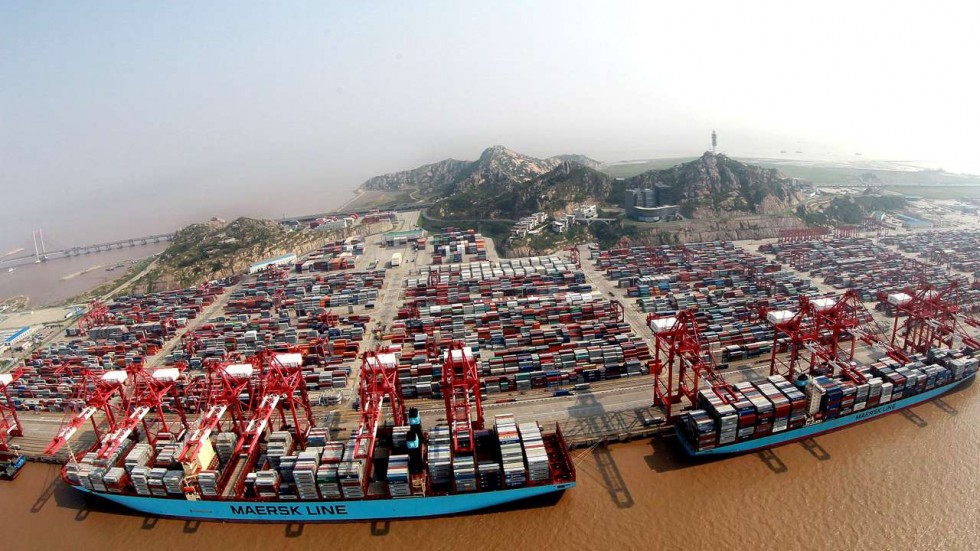- Dangote, Others Plunked $6bn in Lekki Free Zone in 2016
The largest manufacturing conglomerate in West Africa, Dangote Group, and other companies have invested $6 billion in Lekki Free Trade Zone (LFTZ) in the last one year.
Likewise, the construction of Lekki Deep Sea Port, which was valued at $1.6billion, will take off next month as part of the plan to speed up industrial and manufacturing activities in the zone.
Lagos State Governor, Mr. Akinwunmi Ambode, disclosed this at the weekend when he inspected the zone alongside state Commissioner for Commerce, Industry and Cooperatives, Mr. Rotimi Ogunleye and his transportation counterpart, Mr. Olanrewaju Elegushi, among others.
Also, the Chairman, Lekki Worldwide Investment Limited, Mr. Biodun Dabiri; Managing Director, Asia-Africa International FZE, Mr. Sun Yuchao, and General Manager, Asia – Africa international FZE, Mr. Li Yong, were part of the team that inspected the zone.
Dangote Group is currently undertaking four strategic projects at the Lekki Free Trade Zone namely: a petroleum refinery, fertilizer processing plant, sub-sea gas pipeline project, as well as a petro-chemical project projected for completion on or before 2019.
During the inspection, Managing Director of Lekki Free Zone Development Company, Mr. Ding Yonghua, provided insight into the volume of investment the zone had attracted in the last 10 years.
As at 2016, Yonghua disclosed that the zone had already attracted 114 investors, noting that of all the investors that came to the zone in the last 10 years, 46 “are commercial investors. More investors have indicated interest in coming to set up businesses in the zone.
“The reason we have been spending more in the zone was that the zone is a swampy area and it cost $10 to sand-fill a meter within the zone. The most occupied region within the zone of the South-west quadrant where the port would be situated.”
After he was briefed about the volume of investment the zone had attracted as at 2016, the governor disclosed that more than over $6 billion has been invested in the LFTZ in the last one year, saying Dangote Group alone invested about $4 billion.
Ambode explained that over $6 billion “has been invested in the zone in 2016 alone. Dangote Group has the lion’s share of about $4 billion. We have a land space of over 16,000 hectares. A portion of this land has already been put to use.
“We are all aware of the investments Dangote Group and China Africa Lekki Investment Limited (CALIL) have injected into the zone. We are also aware of the partnership the duo signed with the Lagos State Government. This partnership made the company own 60 percent while Lagos State own 40 percent,” he explained.
Ambode added that putting the funds at the zone at a time when Nigeria was gradually easing its way out of recession would not only improve infrastructure and boost development, but would definitely help attract more investors to the zone.
Likewise, the governor promised that work “will commence on the Lekki Deep Sea Port in April,” explaining that the sea port “is indeed a critical infrastructure that will attract more investors into the zone and ensure return on investment.
“With the construction of Lekki Deep Sea Port, Lekki International Airport and others, it is obvious that a single road is no longer sufficient for the zone. We have to dualise the Lekki-Eleko road beyond the zone in order to withstand the influx of vehicle that will be making use of the road to access the zone and other areas.
“With this, we will be able to sustain the investments in the area. With the Lekki Deep Sea Port, Dangote Refinery and Lekki International Airport coming on board, Lagos East will witness massive economic turnaround within the next two years,” he said.
He also commended residents for the peaceful atmosphere witnessed in the zone in the last one year, which he said was crucial to the development recorded in recent time.
Ambode said about 800 hectares of land “will be handed over to the zone within the next six months for further development, adding that: “The overall interest is for the residents of Lagos. Aside that we will grow our GDP, this zone help reduce unemployment and capacity for the future.”


 Naira3 weeks ago
Naira3 weeks ago
 News4 weeks ago
News4 weeks ago
 Naira4 weeks ago
Naira4 weeks ago
 Travel3 weeks ago
Travel3 weeks ago
 Naira3 weeks ago
Naira3 weeks ago
 Jobs3 weeks ago
Jobs3 weeks ago
 Naira3 weeks ago
Naira3 weeks ago
 Investment4 weeks ago
Investment4 weeks ago





























